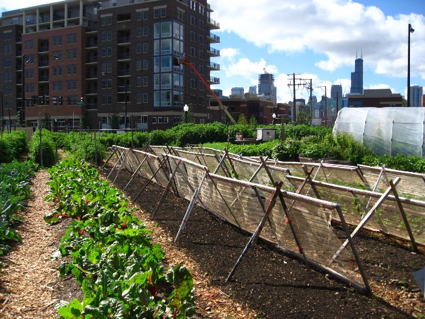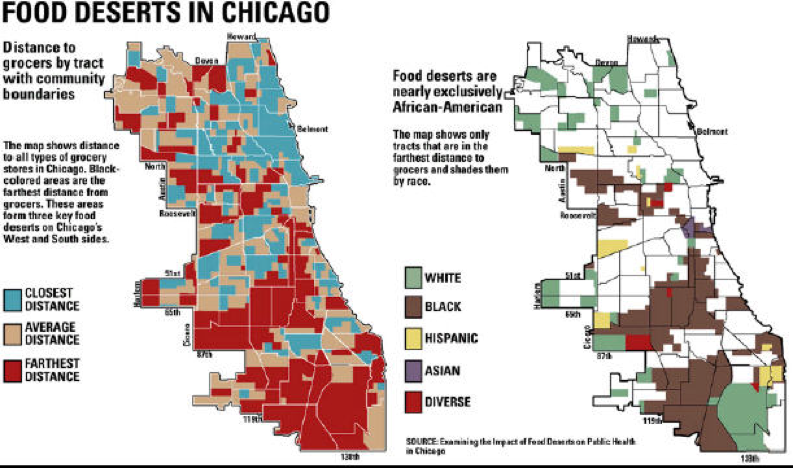BY Shelby KlingbergWith over 100 neighborhoods and around three million people, Chicago is known for its diversity and culture. But, many communities in Chicago, specifically southern neighborhoods, are food deserts (see map below). These areas where fresh, affordable produce is difficult to acquire. Community gardening is an effort that provides a space to strengthen relationships while simultaneously providing physical aid to food insecure people. Community gardens have been rising in popularity and for good reason. These gardens not only provide aid and allow growth for communities, but also help combat climate change and its negative effects.  A community garden in Chicago. (Picture credit: Sustainable Chicago) A community garden in Chicago. (Picture credit: Sustainable Chicago) Socially, the impact of community gardens can be extremely extensive. The effort can create almost an immediate help in providing healthy and nutritious food to the community as most food grown is free for those who help. A community-based participatory research study shows that vegetable intake of “several times a day” for adults increased from 18.2% to 84.8% and children’s increased from 24.0% to 64.0%. Community gardens can drastically change the dietary habits of community members for the better, especially in cases where grocery stores and markets are not easily accessible. In cases where the produce from the community gardens are not free, the SNAP Garden Program still relieves the economic strain of shopping and eating healthy. The program partners with food stamps to make the food more affordable in an attainable way. Originally, one could buy seeds with food stamps, but not everyone has the knowledge or space to grow fruit and vegetables. The Snap Garden Program accepts the food stamps to buy directly from gardens, creating a less time consuming way for community members to get fresh produce. Community gardens give low income areas the opportunity to prosper and move beyond the struggle of gaining access to healthy food. Other than physically providing food, community gardens provide a space for the community to further develop education and personal relationships. These gardens create opportunities for children to learn about diet and nutrition hands on. At John J. Pershing Elementary School in Dallas, after implementing a school garden, tests score are up and both students and teacher are more enthusiastic about learning. Elementary students in garden programs have increased interpersonal skills and cooperative skills. Developing these skills at a young age is valuable because those skills are pivotal in joining the workforce and contributing to society along with working with others.
0 Comments
Your comment will be posted after it is approved.
Leave a Reply. |
AuthorsStudents in Jess' ENV 151 Introduction to Sustainability write blog posts on a sustainability-related topic of their choice. ArchivesCategories
All
|
1110 West Belden Avenue Chicago Illinois 60614
|
Site last updated: August 9, 2018.



